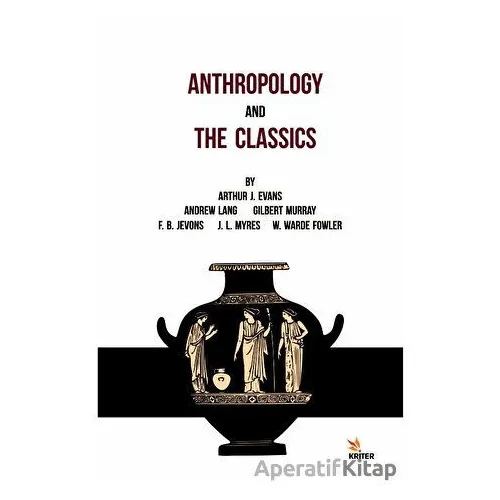Anthropology And The Classics - Andrew Lang - Kriter Yayınları
Hiç mesaj bulunmadı
| Taksit | Tutar | Toplam |
|---|---|---|
| Tek Çekim | 323.00 TL | 323.00 TL |
| 2 Taksit | 161.50 TL | 323.00 TL |
| 3 Taksit | 111.97 TL | 335.92 TL |
| 4 Taksit | 84.79 TL | 339.15 TL |
| 5 Taksit | 68.48 TL | 342.38 TL |
| 6 Taksit | 57.60 TL | 345.61 TL |
| Ödeme Türü | Toplam Tutar |
|---|---|
| Diğer Kredi Kartları | 323.00 TL |
| Havale / Eft | 323.00 TL |
| Posta Çeki | 323.00 TL |
| Kapıda Ödeme | 338.00 TL |
Kapıda ödemeli siparişlerde +15,00TL kapıda ödeme hizmet bedeli ilave edilir. | |
- Vade farksız taksitler KOYU renkte gösterilmektedir.
- X+X şeklinde belritilen taksitler (Örneğin: 2+3) 2 taksit olarak işleme alınmakta ancak ilgili bankanın kampanyası dahilinde 2 taksit üzerinden işlem yapıldığı halde 2+3 yani 5 taksit olarak kartınıza ve ödemenize yansımaktadır. (2 taksit seçilmiş olsa bile banka kampanyası dahilinde ekstradan vade farkı eklenmeden işlem 5 taksite bölünmektedir.)
Anthropology And The Classics - Andrew Lang - Kriter Yayınları
To gather impetus for our imaginative leap into the classical period we start, it is true, from the cave-man, but have already crossed the threshold in arriving at the Cretan. Homer, Hesiod, Herodotus—the claims of these to rank as classics are not likely to be assailed. There remain the Roman subjects, magic and lustration. In what sense are they classical? Now, to use the language of biology, whereas Greek literature is congenital, Roman literature is in large part acquired. Therefore it includes no ‘songs before sunrise’; for it the ‘father of history’ cannot be born again. Spirit no less than form is an importation. In particular, the magico-religious beliefs of Latium have lost their hold on the imitator of Greece and the Orient. Yet primal nature will out; and the Romans, moreover, were a pious people who loved to dwell on their origines. To appreciate the greatest of Latin classics, Virgil—to glance no further afield—one must at least have gained the right to greet him as fellow-antiquary. For the rest, these essays profess to be no more than vindemiatio prima, a first gleaning. When the harvest has been fully gathered in, it will then be time to say, in regard to the classics both of Greece and of Rome, how far the old lives on in the new, how far what the student in his haste is apt to label ‘survival’ stands for a force still tugging at the heart-strings of even the most sophisticated and lordly heir of the ages.











